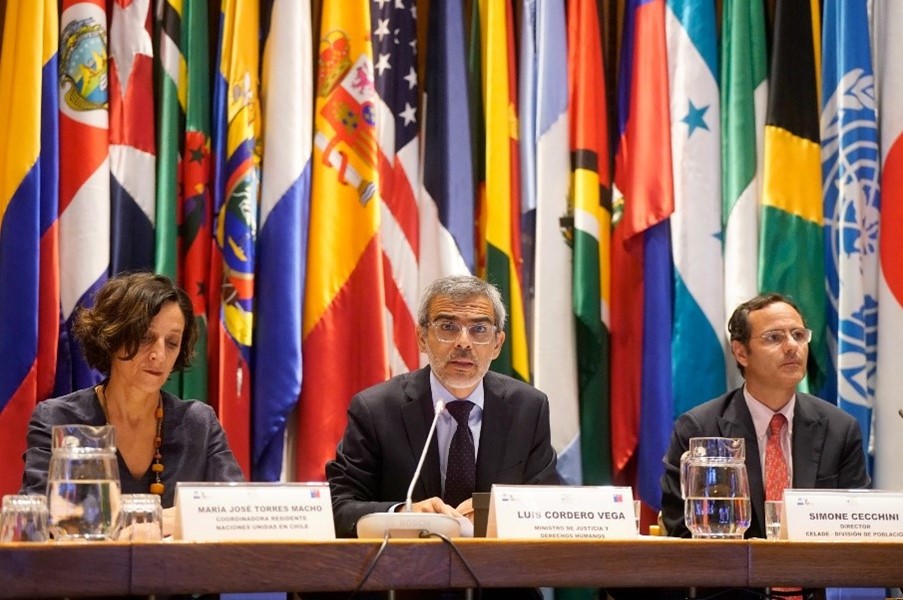Harnessing the contribution of intra-regional migration to socio-economic development in Latin American and Caribbean countries (ECLAC)
 This project aimed to strengthen the national capacities of five Latin American and Caribbean countries to fully harness the socio-economic benefits of intra-regional migration and its contributions to sustainable development. As a first step, the project strengthened national understanding of the social, economic and cultural benefits of international migration, as well as its contributions to sustainable development in Latin American and Caribbean countries and then bolstered countries’ ability to formulate and implement public policies that fully harness the benefits and contributions of international migration to sustainable development.
This project aimed to strengthen the national capacities of five Latin American and Caribbean countries to fully harness the socio-economic benefits of intra-regional migration and its contributions to sustainable development. As a first step, the project strengthened national understanding of the social, economic and cultural benefits of international migration, as well as its contributions to sustainable development in Latin American and Caribbean countries and then bolstered countries’ ability to formulate and implement public policies that fully harness the benefits and contributions of international migration to sustainable development.
As intraregional mobility grows in Latin America, the ways in which migration contributes to sustainable development continue to be undermined by a lack of social inclusion. This project responds to the growing need for evidence-based knowledge on the social, economic and cultural benefits associated with migratory processes. The project focused on improving understanding of the contributions of international migration to sustainable development and increasing the capacity of policymakers from selected countries in Latin America and the Caribbean to formulate and implement public policies and development plans that consider the opportunities and challenges of international migration in line with the commitments established in international agreements such as the Global Compact for Safe, Orderly and Regular Migration, the Montevideo Consensus on Population and Development, and the 2030 Agenda for Sustainable Development.
In the discussions and exchanges in the workshops, dialogues and seminars organized under this project, participants highlighted both the contributions of migrants and the challenges they face. The four national studies commissioned under the project formed the basis of two national policy instruments in Chile and Costa Rica (i) the New National Policy on Migration and Aliens of Chile (December 2023) and (ii) The National Integration Plan for Costa Rica (PNICR) 2023-2027. These policy instruments incorporated recommendations on the integration, inclusion and contributions of migrants. Furthermore, the capacity-building activities provided to 150 public officials (including the Minister, Under-Secretary, Directors of the Judicial Assistance Corporations of the country; and members of other civil servants' organizations, led to the Ministry issuing a new regulation that reduced the standards of entry and viability for employment and eased access to legal representation for migrants. These changes in internal protocols directly facilitate access to labor justice for migrants and enable them to contribute to the economy while ensuring their own safety and wellbeing.
At the closing regional seminar of the project, the director of the Judicial Assistance Corporation stressed that the Labour Defender Offices are the first institutional contacts that migrants have when they face economic difficulties or related abuse. As an example, she noted that thanks to the new policy changes that occurred as a result of the training provided by this project, documents such as identity cards are no longer required for migrant laborers to seek legal recourse. The judges, who also participated in the trainings and are in charge of trials now accept as witnesses those who do not have a national identity document. These changes in internal protocols directly facilitate access to labor justice for migrants, and consequently improve their economic contributions and wellbeing.